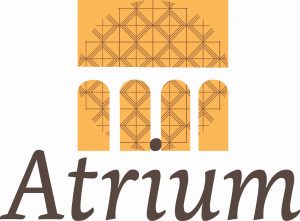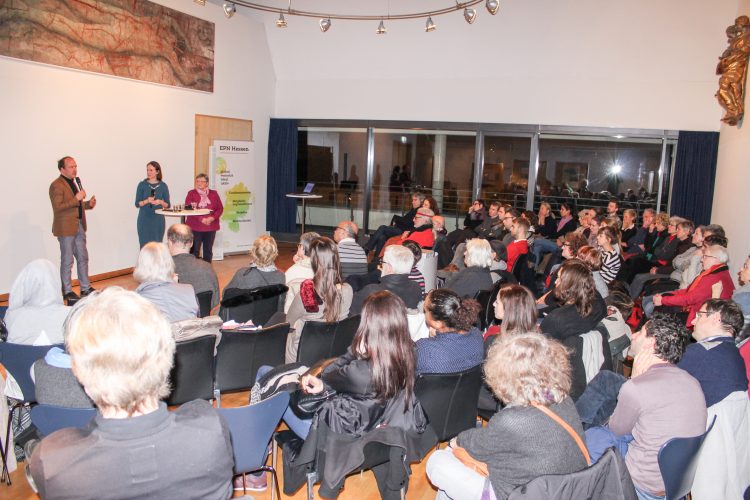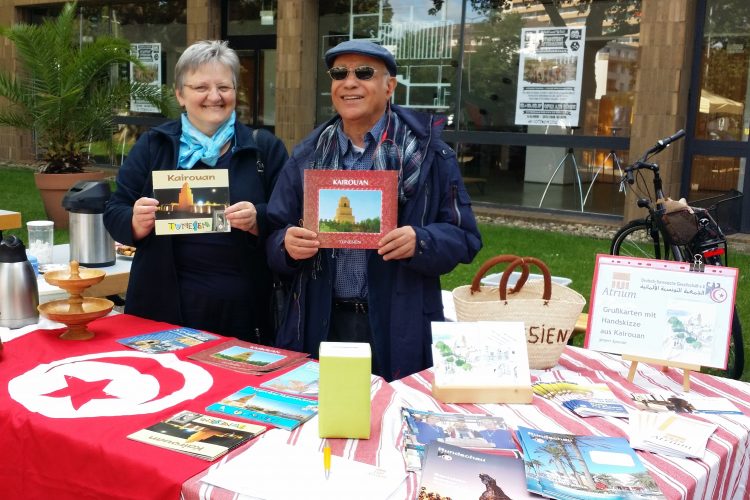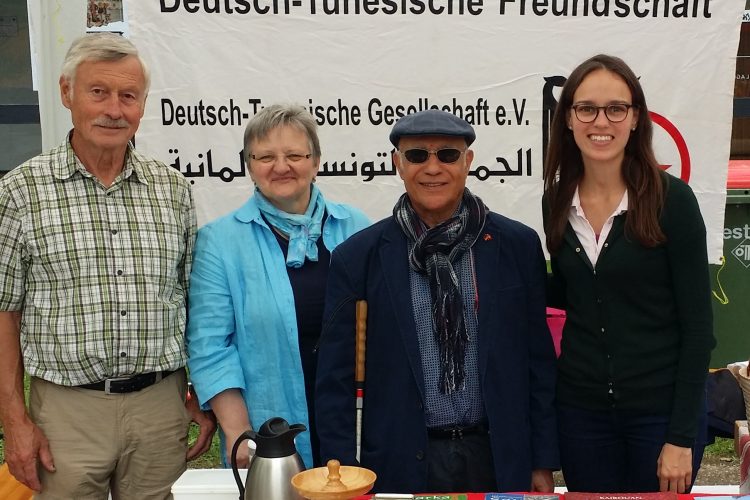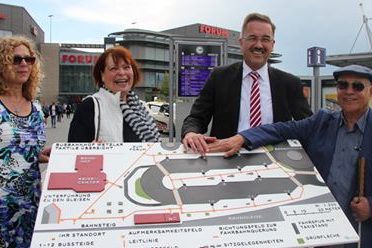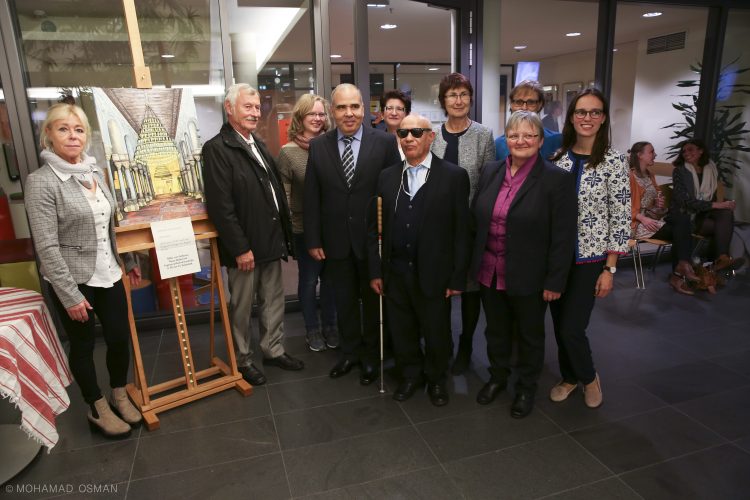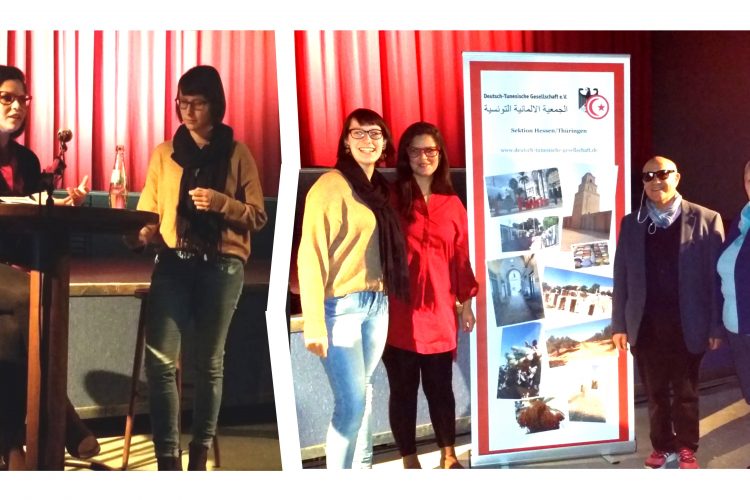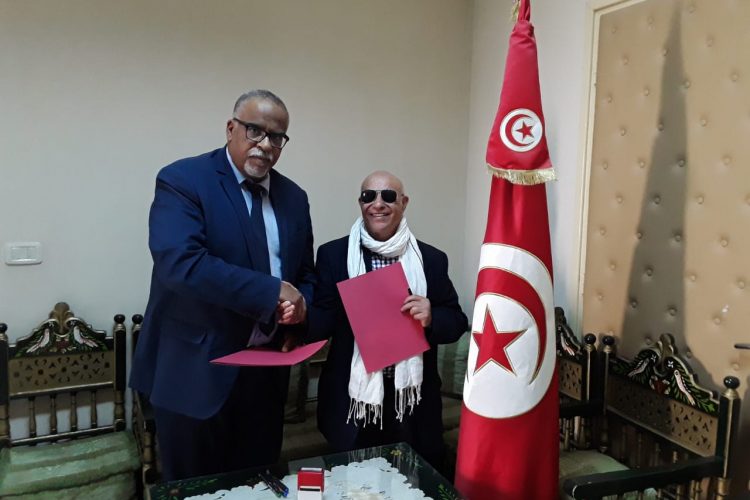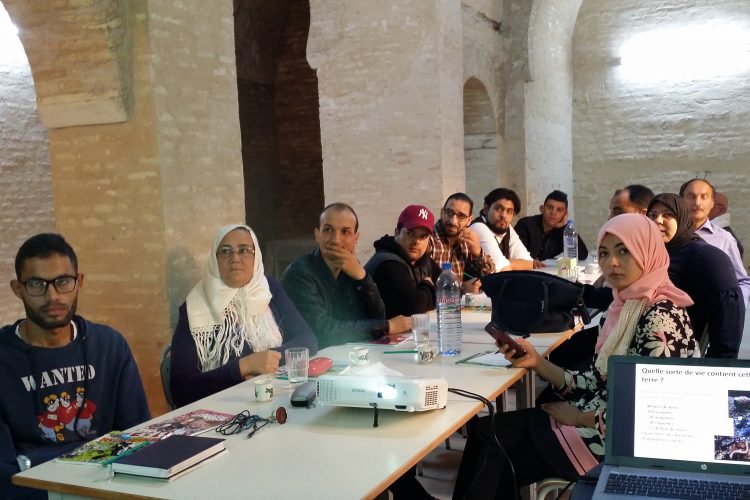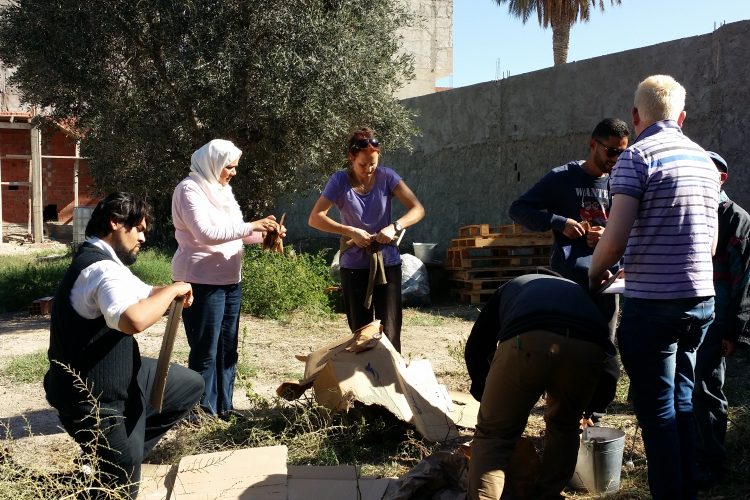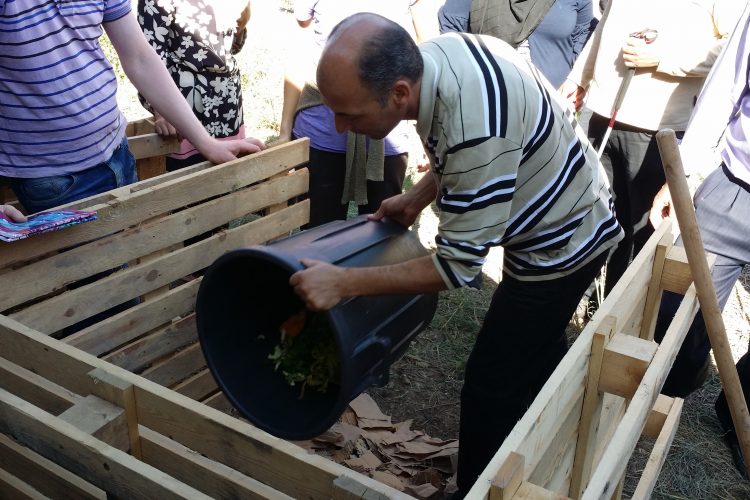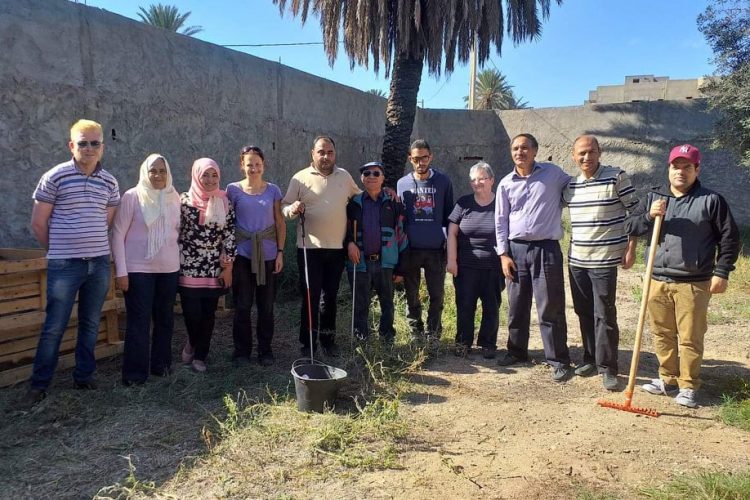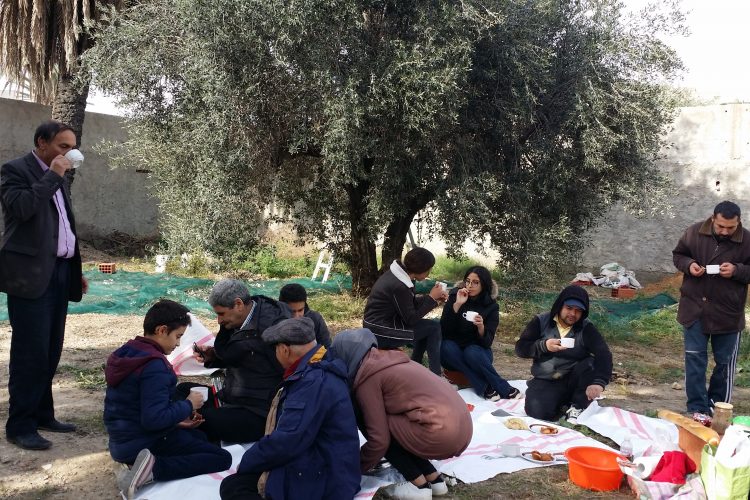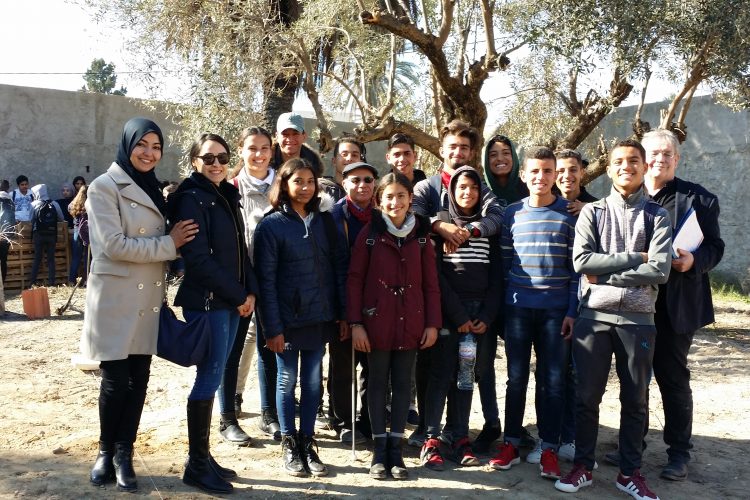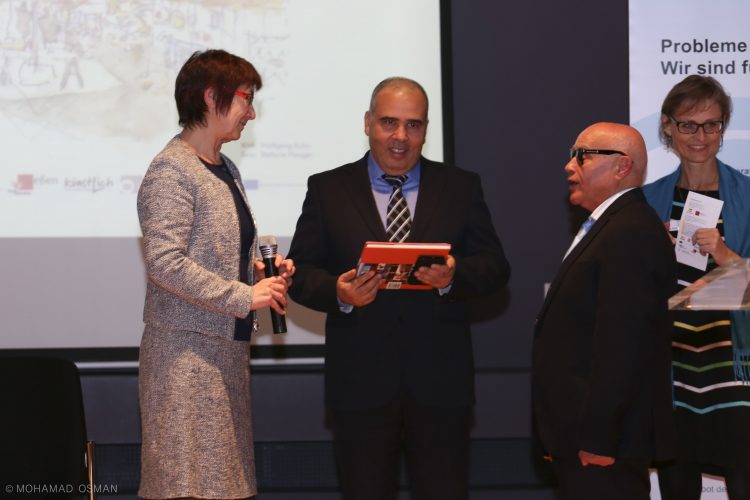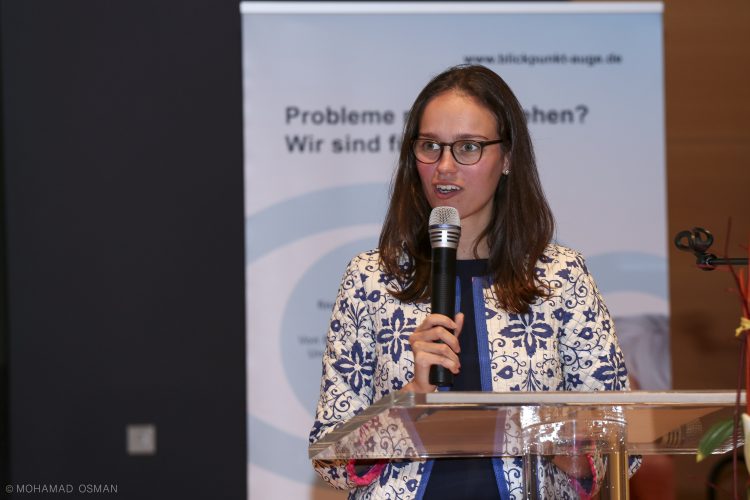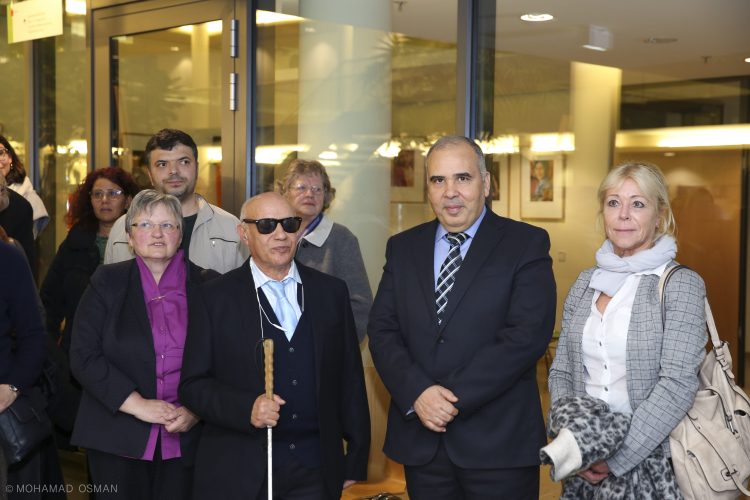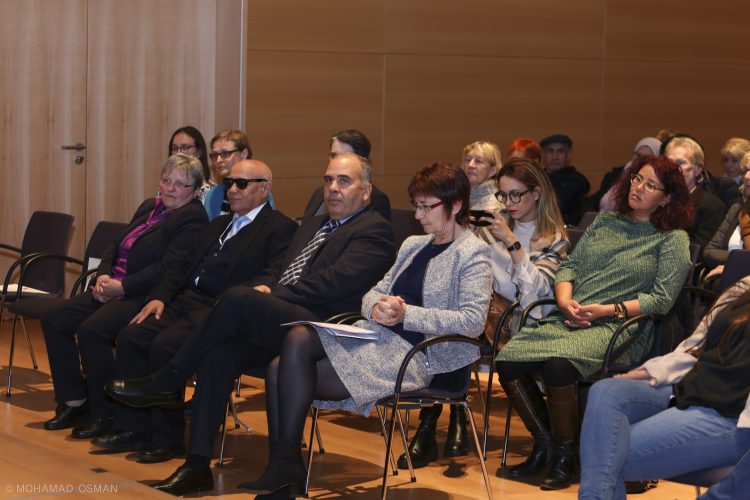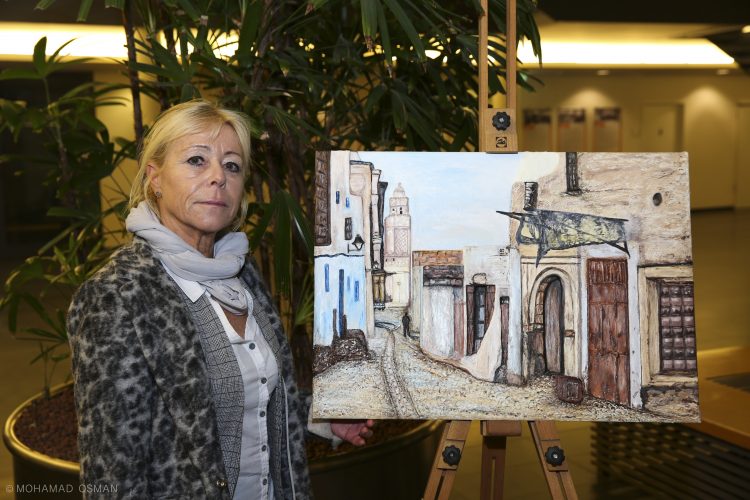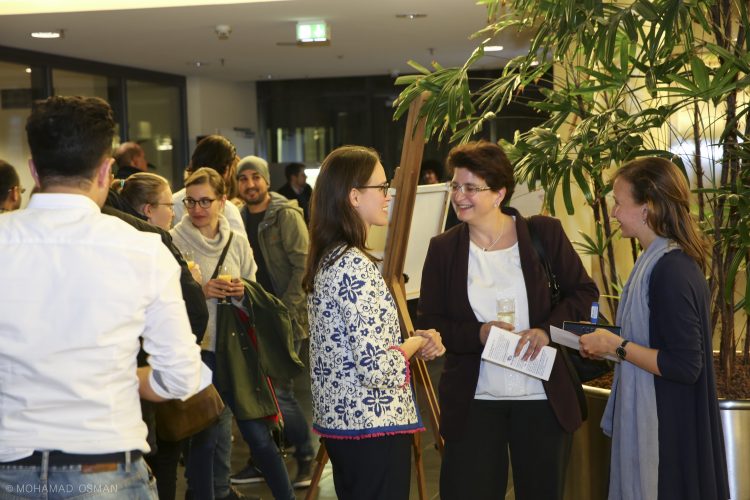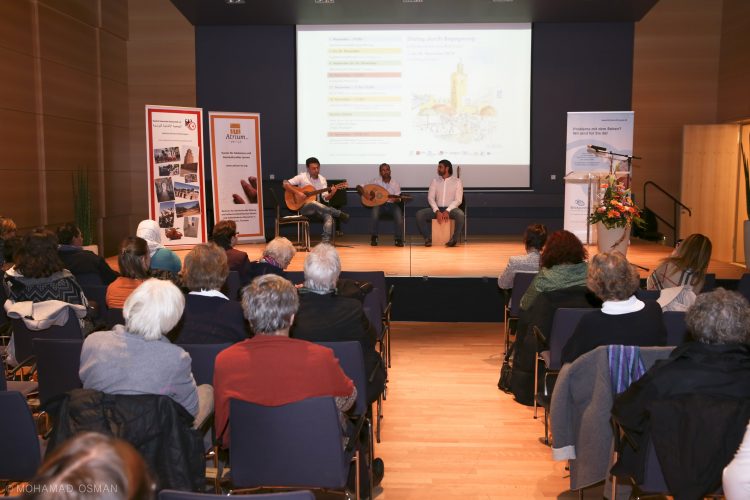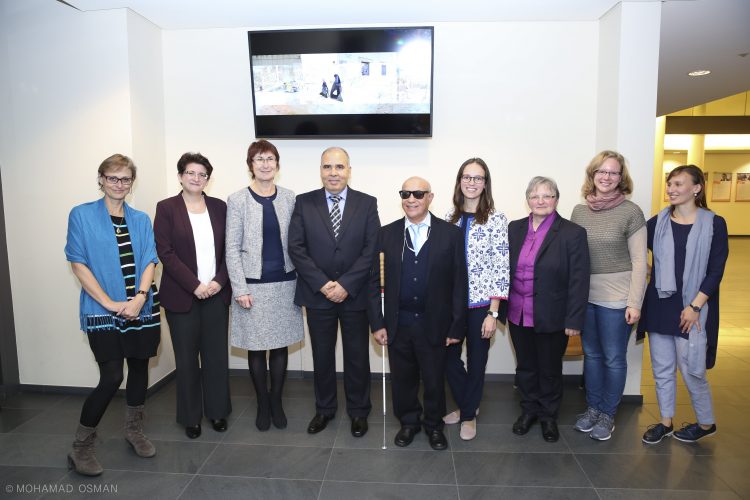ABOUT ATRIUM
Atrium e.V. is a non-profit organization with the objective of promoting the inclusion of people who are blind or visually impaired in both Germany and Tunisia.
We believe that all people have the right to live a self-determined life equal to people without visual impairments. This includes overcoming challenges that may arise in everyday life, such as the preparation of meals, personal hygiene or the identification of money but also professional self-realization and economic independence.
We are convinced, that we as a society can contribute by fighting against discrimination and prejudice in order to achieve an inclusive and accepting social environment.
Our organization encourages inclusion through the promotion of cross-cultural competencies and political education. We also raise public awareness through workshops, educational trips and youth
exchanges between Tunisia and Germany for the blind and visually impaired.
ATRIUM IN GERMANY
Inclusion of blind or visually impaired people in Germany and Tunisia
Our organization Atrium e.V. was founded by Dr. Mustapha Ouertani in 2010 due to his personal experience that structural, internal and external circumstances can negatively impact a person’s daily life.
Every individual is confronted with the challenges that arise, due to the multicultural and complex nature of modern life. This is reason enough to discover and make use of one’s own resources, capabilities and competencies.
The promotion of inclusivity plays a vital role in our organization and is therefore a priority in our projects. In addition to that we focus on raising public awareness for the needs of people with disabilities.
ATRIUM IN TUNISIA
We are building a center for intercultural dialogue in the heart of Tunisia. Kairouan offers the best conditions for an exchange between various cultures and religions. Our project is still in its infancy, we therefore greatly appreciate donations and volunteer work.
Our long-term goal is to create an education and culture center in Kairouan (Tunisia), that offers inclusive learning and community activities.
We want to ensure that people with disabilities have the right to be a part of society and introduce them to new occupational areas. We know that people with and without disabilities can complement and enrich each other’s everyday lives. This can also be beneficial for the professional (re)integration of disabled people.
ACTIVITIES
A CHANGE OF THE SENSES – Inclusive Cultural Garden in Kairouan
Our project began in September of 2019 in cooperation with our Tunisian partner “L’Association De l’Aveugle Voyant”. Our current goal is to build an inclusive cultural garden, involving planting, harvesting as well as providing workshops and guided tours.
We started our journey with blind and visually impaired participants in an inclusive workshop all about composting theory as well as the practical implementation of the acquired knowledge.
This workshop was followed by the traditional olive harvest in December of 2019. It had been the very first harvest for many participants, and in the end, everyone was rewarded with a customary lunch under the olive trees. In the beginning of 2020 our garden would go on to be visited by multiple high school classes from Kairouan who also participated in the workshops.
However, due to the complications brought on by Covid-19 in 2020 and 2021, we had to adapt our project planning. In the future, we hope to be able to continue providing inclusive workshops with blind and visually impaired young people from all the different provinces in Tunisia. Despite the pandemic, we were still able to maintain the composting facilities and expand our garden through the planting of fruit trees, as well as improve our soil for further gardening projects.
With newly purchased garden equipment we are ready to resume where we left of pre-pandemic.
Inclusive exhibition about the city of Kairouan
These photographs were taken as part of a project to promote intercultural dialogue. It was initiated by the European Union Delegation in Tunisia, in order to underline the appreciation of the tunisian World Heritage site.
The idea behind the exhibition was for visitors to gain an impression of the city Kairouan in a plethora of ways. For this very reason, the exhibition made use of not only traditional photography but also audio installments and various objects the visitors could interact with. This interplay of sight, touch and feeling enables a comprehensive perception and experience of the Tunisian city for everyone. The exhibition took place in November 2018 in Giessen, Germany. Please find further information in the German article here.
Blindwalk – city life and art with closed eyes
How do people who are blind or visually impaired design their mobility and how do they experience art? The question was raised by the Blindwalk on Saturday, November 17, 2018, in the town hall of Giessen. 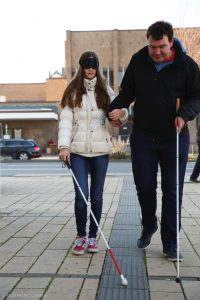
The participants were greeted in front of the city hall by blind and visually impaired people and were provided with blindfolds and white canes. The idea is that people with sight get to experience everyday situations, such as crossing a street, while being accompanied by someone without sight.
Which sounds are perceived? How does the asphalt feel? How do you experience/perceive known smells and tastes if you do not see it?
Afterwards, the visitors moved on to the exhibition „Dialogue through Encounter – Impressions from Kairouan“ located in the town hall. Here began the metaphorical journey to Kairouan through the use of all senses. The room was filled with the familiar smell of jasmine and orange blossom. Participants were able to interact with displayed objects and they even had the pleasure of taste testing dates and makroudh (a sweet pastry from Kairouan).
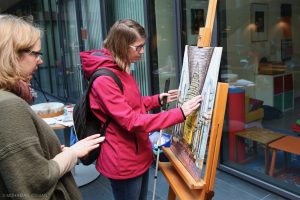 How do you describe a picture? What is subjective?
How do you describe a picture? What is subjective?
The final part of the exhibition focused on the description of pictures through teamwork. Sighted people were paired with blind or visually impaired people (if both team members had sight, one had to wear a blindfold). The person with sight had to then describe a picture for the person without sight. At the very end everyone had a chance to discuss or reflect upon their experience and the challenges they faced. Many of the blind or visually impaired participants shared their own experiences in life and gave their input as to how one could potentially overcome these everyday situations.
„Talk to me directly, not (just) to my accompanying person!“(a quote from a visually impaired participant)
PLANNED PROJECTS
Female medical touch-based diagnostician
Breast cancer is still the most common form of cancer and is one of the leading causes of death among women. Early detection of breast cancer allows for a less stressful treatment and significantly improves a patient’s chance of survival. A gynaecologist’s breast exam, however, is often performed under high time pressure and this could potentially lead to a misdiagnosis. Training blind and visually impaired women to be medical touch-based diagnosticians would take care of this problem, while also creating a meaningful and niche field of work for women with disabilities. Blind and visually impaired people have a demonstrable superior sense of touch, they would be recruited not “despite their disability” but “because of their talent”. Our organization aims at establishing opportunities for Tunisian blind and visually impaired women to be trained as female medical touch-based diagnostician in Germany and return to Tunisia as highly qualified personnel.
Support our projects:
Account holder: Atrium e.V.
IBAN: DE62 5139 0000 0013 6940 01
BIC: VBMHDE5F
